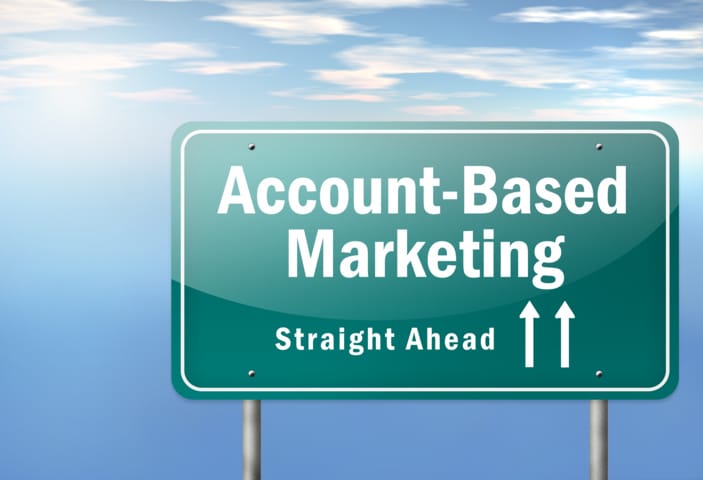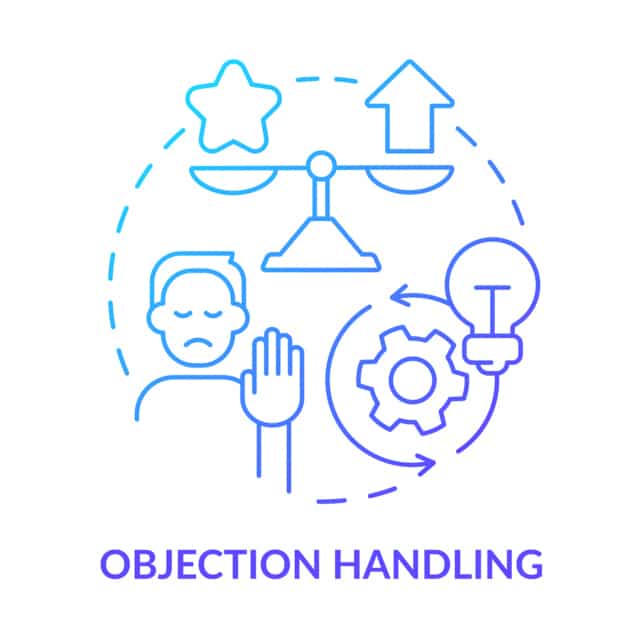Discover the ultimate guide to account-based selling and revolutionize your sales strategy with our comprehensive resource.
Sales is a broad field that involves various selling approaches and strategies employed by sales professionals across different industries. From face-to-face selling to retail jobs and customer-centric sales roles. There are countless avenues available to aspiring sales professionals and seasoned sales experts.
If you have personally experienced these types of selling and found them to be less fulfilling or not aligned with your interests, it may be time to consider alternative sales jobs in Dallas or explore other opportunities where you can maximize your selling skills. One such approach gaining significant traction is account-based sales.
In this ultimate guide, we will discuss what account-based selling is, its distinct advantages, and how it can revolutionize your sales career. So, whether you are just starting your journey in sales or looking to transition to a B2B sales career, this comprehensive article will teach you everything you need to know about account-based sales.
What is Account-Based Selling?
Account-based selling (ABS) is a strategic sales approach that focuses on building relationships and nurturing clients under high-value accounts. Unlike the typical selling method where a business captures and pursues individual leads or customers. Account-based selling employs a more personalized approach, often targeting companies, businesses, and organizations as clients. ABS is a targeted approach to business-to-business (B2B) selling.
While the marketing team is responsible for advertising the brand, services, or products being offered and acquiring leads. It is the sales team that will persuade the prospects to sign up with the business and close the account. Once signed up, the customer success team will then deliver a customized onboarding experience for a smooth and comfortable transition and account management. This model is called account-based sales development (ABSD) where relevant teams in an organization work together to close targeted accounts using a personalized approach tailored to the client’s needs.
The goal of account-based selling is to offer a personalized approach to prospects, deepen engagement, increase conversions, and foster long-term customer relationships by providing a customized and highly relevant experience for each account.

Traditional vs. Account-Based Sales
The traditional sales approach we know involves marketing your brand, products, and services to a broad audience using generic messaging. This approach often focuses on individual transactions and closing as many deals as possible, without necessarily prioritizing the quality of the accounts or the depth of the customer relationships.
Account-based sales, on the other hand, features distinctive characteristics that make it different from traditional sales. These include:
- Targeting: Account-based selling offers a more targeted approach, focusing mostly on a selected number of high-value target accounts. Unlike traditional sales, ABS prioritizes quality over quantity.
- Personalization: Account-based sales focuses on personalized interactions and messaging tailored to each account. Companies that use the ABS approach take time to customize their marketing and sales pitches according to the specific account they wish to close.
- Alignment: Account-based sales requires close alignment between sales and marketing teams. This is somewhat different from a traditional sales approach where it involves a more siloed approach, with sales and marketing operating independently.
Benefits of Adopting an Account-Based Sales Strategy
If you are heading a sales department, running a sales organization, or simply working as a sales professional looking to widen your skills, you should not limit your selling strategies to traditional methods and norms. If they are working well for you, that’s good. But if you wish to achieve more sales and boost ROI, you may consider adopting account-based selling.
Below are some of the benefits of adopting an account-based sales strategy.
1. Achieve higher conversion rates
ABS allows for more personalized and targeted engagement, resulting in higher conversion rates. By focusing on accounts that closely match the ideal customer profile, sales professionals can tailor their offerings to meet specific needs and pain points, increasing the likelihood of closing deals.
2. Close bigger deals with long-term contracts
ABS prioritizes high-value target accounts, which often have larger deal sizes. By concentrating efforts on these accounts, sales professionals can aim for more significant revenue opportunities and long-term customer value.

3. Improve client relationships
ABS fosters stronger relationships with key stakeholders within target accounts. By understanding their unique challenges and goals, sales professionals can provide tailored solutions and become trusted advisors, leading to long-term customer loyalty and repeat business.
4. Align your sales and marketing team
ABS encourages collaboration and alignment between sales and marketing teams. By working together to develop targeted strategies and messaging, organizations can create a seamless customer experience and maximize the impact of their efforts.
5. Achieve enhanced ROI
ABS offers a higher return on investment (ROI) compared to traditional sales approaches. By focusing resources on high-potential accounts, organizations can allocate their time and budget more efficiently, resulting in improved sales productivity and revenue growth.
Is Account-Based Selling For You?
Determining whether account-based prospecting and selling is the right path you need to take for your team or organization requires careful consideration of various factors. While ABS offers significant benefits, it may not be suitable for every business or sales scenario. Here are some conditions that may indicate it’s time to switch to account-based selling:
1. You are targeting high-value accounts
If your business relies on a small number of key accounts for a significant portion of your revenue, ABS can be a highly effective strategy. ABS enables you to prioritize and focus your efforts on these high-value accounts, maximizing the potential for success.
2. You have complex sales processes and cycles
If your sales cycles involve multiple decision-makers, long evaluation periods, and intricate buying processes, ABS can help streamline your efforts. By targeting specific accounts, you can navigate complex sales cycles more effectively and build deeper relationships with key stakeholders.
3. You offer personalized solutions
If your offerings require customization or tailored solutions to meet individual account needs, ABS is well-suited for your business. ABS emphasizes personalization and allows you to deliver solutions that address the unique challenges of each target account.
4. You wish to align your sales and marketing teams
If your sales and marketing teams need better alignment and collaboration, ABS can bridge the gap. ABS encourages close coordination between sales and marketing, enabling both teams to work together to develop tailored strategies, messaging, and content for specific accounts.
5. You prioritize building long-term relationships with clients
If building long-term customer relationships and maximizing customer lifetime value are key objectives, ABS is worth considering. ABS emphasizes nurturing and developing relationships with key stakeholders within target accounts, fostering loyalty and repeat business.
6. You want to benefit from data-driven insights
If your organization values data-driven decision-making, ABS provides valuable insights. ABS requires in-depth research and analysis of target accounts, providing valuable data on customer preferences, pain points, and buying behaviors.
The decision to switch to an account-based selling strategy depends on your overall business goals, target market, and sales dynamics. It is important to assess first whether the principles and benefits of ABS align with your organization’s specific needs and objectives. Conducting a thorough analysis of your customer base, sales processes, and resource allocation will help determine if ABS is the right path to take.
Remember that account-based selling requires a significant investment of time, resources, and cross-functional collaboration. Carefully weighing the potential benefits against the costs and challenges will help you make an informed decision about whether account-based selling is the right strategy for your sales team and organization.
Getting Started: Key Concepts and Principles You Need to Know
After learning what is account-based selling, what its key benefits are, and whether or not ABS is the right fit for your sales organization, you may have been convinced at this point that account-based sales can provide great advantages to your business. If you are ready to start using account sales strategies, you should first learn the basic concepts and principles of ABS.
Account-Centric Approach
ABS operates on the idea that one closed client falls under one account, and this one account is a unique market that requires tailored strategies, messaging, and account management to address the specific needs and challenges of the client. This one-client-one-account approach requires close monitoring, management, and support in order to acquire and retain the client in the business for a long period. Thus, sales organizations employing the ABS approach hire multiple sales agents to ensure that each account is managed closely and meticulously.
Ideal Customer Profile (ICP)
With an account-based sales strategy, a business is focusing its time and resources on a targeted and limited number of prospective clients. The process of selecting the “right fit” involves a rigorous process and spending a significant amount of time, energy, and effort. Thus, being highly selective and meticulous is crucial.
To be able to do this, ABS relies on defining the ideal customer profile (ICP), which outlines the characteristics and criteria that make an account a good fit for the organization’s offerings. This helps in identifying high-value target accounts that are more likely to generate significant revenue for the company. With a detailed ICP, a sales organization operating on ABS can easily pinpoint the potential prospects that will sign up and stay with the business for years.
Multi-Channel Engagement
ABS utilizes a combination of channels to engage with key decision-makers and stakeholders within target accounts. This can include personalized emails, phone calls, social media outreach, and in-person meetings to build relationships and foster engagement. By using the multi-channel strategy, your sales team or organization can easily and likely pursue a target number of high-value accounts.

Account Based Selling Best Practices
If you are ready to adopt account-based selling as your primary sales strategy, below are some tips and best practices you need to keep in mind.
1. Define clear Ideal Customer Profiles (ICPs).
The success of an ABS strategy starts with defining your ideal customers. This will help your team focus on accounts that align with your offerings and are most likely to generate significant revenue. To help you identify your ICPs, brainstorm with your team to figure out the answers to these questions:
- Which customers are the most profitable for our business and why?
- What do our best customers look like?
- What is their business size and which industry should they be coming from?
- What is their location?
- What should their annual revenue be?
- What are their common concerns or problems and how do we address them?
- What functions and operations do we do for them through our products or solutions?
- How long will they typically work with us?
- What products or services do they purchase from us throughout their lifecycle?
- Who will be our contact person in their organization?
- What does our day-to-day working relationship with them be like?
2. Conduct thorough account research.
To better understand your target accounts and prospective clients, spend time researching and reading information about their company, industry, pain points, business goals, key stakeholders, and buying processes. This knowledge will enable you to tailor your approach and create a personalized message effectively.
3. Develop personalized messaging and value propositions.
Craft messaging that speaks directly to the unique challenges and goals of each of your target accounts. Tailor your value propositions to showcase how your products or solutions address their specific pain points and provide value.
Avoid using generic templates for your presentations. It doesn’t only make you look unprepared, it also makes your prospect feel less important. Here’s how to create a compelling sales pitch that will attract your target audience.
4. Align your sales and marketing efforts.
With an account-based sales development model, sales, marketing, customer support, loyalty, and other teams should collaborate in order to win and retain clients for long-term agreements. Thus, ensure that you foster close collaboration and alignment between your sales and marketing teams primarily. Work together to develop targeted campaigns, content, and strategies that resonate with the specific needs of your target accounts.
5. Build relationships with key stakeholders.
One of the most important account-based selling best practices is to get to know the key stakeholders and decision-makers of your target accounts better. Take time to know their names, positions and titles, and their primary responsibilities in the company. This way, you can identify who to approach when you’re ready to present your sales pitch and know how and what to communicate to them. Build strong relationships with them through personalized outreach, meetings, and networking opportunities.
6. Develop comprehensive account plans.
Create detailed account plans for each account. Outline specific objectives, strategies, and tactics to engage and convert the account, tailoring the plan according to their business’s needs and goals. Account plans help you stay organized and focused. Moreover, when it’s time to present your sales pitch and negotiate with your prospective clients, you can share with them your detailed proposal on how you plan to achieve their key KPIs and reach their goals.
Understand that your initial plan may not be the final plan your client will approve of. When this happens, be ready to revise and adjust your strategies according to the requests and preferences of your client so that you can ensure closing the deal.
7. Track and measure key metrics.
Define and monitor key metrics that align with your account-based selling goals, such as engagement rates, conversion rates, deal size, and customer retention. By closely tracking your metrics, you can measure the effectiveness of your ABS efforts and make data-driven adjustments. You can also use historical data to perform sales forecasting and predictions for future sales campaigns.
8. Nurture long-term customer relationships.
Account-based selling is not just about closing deals; it’s about building long-term customer relationships. When you take care of your clients and make them feel that they are valued and heard, they will continue doing business with you, which can easily translate to higher revenues and long-term contracts.
Continuously nurture and provide value to your accounts even after the initial sale. Be available to them whenever they hit roadblocks or have questions about your products or services. Focus on customer success, identify upselling or cross-selling opportunities, and foster loyalty.
9. Seek executive buy-in and support.
Gain support and buy-in from executives and leadership within your organization. ABS requires collaborative effort and support from various departments, including marketing and customer support. When executives understand the value and potential impact of ABS, they are more likely to allocate necessary resources and provide the necessary support.
10. Embrace continuous learning and adaptation.
ABS is an evolving strategy, and now and then, there are new ways that deliver better results. Therefore, it is important to stay up-to-date on industry trends, new tools, and account-based selling best practices. Continuously analyze and evaluate your past ABS efforts and learn to identify areas for improvement. Adapt your strategies based on customer feedback, market changes, and emerging opportunities, so that you can constantly improve your craft and be able to achieve success as a sales professional in Dallas.
By implementing these account-based selling best practices, you can consequently achieve growth and success in your chosen niche. Remember, ABS is a personalized and targeted approach, requiring dedication, collaboration, and continuous improvement to drive meaningful results.
Common Challenges with ABS and How to Overcome Them
Account-based selling comes with its own set of challenges. Being able to recognize these challenges and knowing how to address them is essential for successfully implementing this strategy to your advantage. Some of the common challenges in account-based sales include:
- Limited resources and scalability
- Lengthy and complicated sales cycles
- Data accuracy and availability
- Difficulty in aligning sales and marketing teams
- Managing stakeholder relationships
- Measuring and demonstrating ROI
When you start hitting one or more of these roadblocks, here are some strategies you can follow:
1. If you have a limited budget, Allocate your resources accordingly. Prioritize accounts with higher potential value.
2. Take advantage of automation tools and programs that will help you streamline your processes, such as personalized outreach, content creation, and tracking.
3. Invest in data enrichment tools or services to enhance the accuracy and completeness of your account data.
4. To effectively align your sales and marketing teams, establish alignment meetings regularly. Encourage collaboration and develop shared dashboards to track the effectiveness of each other’s campaigns.
5. Develop a comprehensive stakeholder mapping and engagement plan to identify and prioritize key decision-makers and influencers.
6. Leverage personalized outreach and tailored content to address the specific needs and interests of each stakeholder.
7. Foster relationships with key stakeholders and influencers through ongoing communication, value-added interactions, and proactive problem-solving.
8. Define key metrics and performance indicators that align with your ABS goals, such as account engagement, conversion rates, deal size, and customer lifetime value.
9. Implement robust analytics and tracking systems to gather data and measure the effectiveness of your ABS initiatives.
10. Regularly analyze and report on the results, showcasing the impact of ABS on revenue growth, customer retention, and overall business success.
Addressing these common challenges requires a combination of strategic planning, effective communication, leveraging technology, and continuous iteration and adjustment of your ABS processes. By proactively dealing with these challenges, you can overcome any roadblocks and ensure the success of your account-based selling efforts.
Brands that Successfully Use Account-Based Sales Strategies
If you’re still looking for inspiration on whether or not ABS is the right approach for your sales team or organization, here are two success stories from real-life brands that effectively and successfully utilized account-based selling.
Salesforce
Salesforce, a leading customer relationship management (CRM) software provider, implemented an account-based sales strategy to target enterprise-level accounts in the financial services industry. By defining clear ideal customer profiles and conducting thorough account research, they identified key pain points specific to financial institutions.
Through personalized messaging, multi-channel engagement, and strategic account plans, Salesforce built strong relationships with key decision-makers within their target accounts. By showcasing the value of their CRM solutions in addressing industry-specific challenges, they successfully closed several high-value deals.
The ABS approach led to higher conversion rates, increased deal sizes, and improved customer satisfaction. Salesforce achieved a significant return on investment and witnessed substantial revenue growth from its target accounts. The ABS strategy allowed them to deepen customer relationships, establish themselves as trusted partners, and drive long-term customer loyalty within the financial services sector.
HubSpot
HubSpot is a leading inbound marketing and sales platform that faced challenges in reaching its target accounts in the technology sector due to intense competition and complex sales cycles. They adopted an ABS approach to focus their efforts on a select number of high-value accounts in the software development industry.
By aligning its sales and marketing teams, HubSpot developed personalized messaging and engaged in targeted advertising campaigns. They leveraged account-based advertising to deliver tailored content and ads directly to key stakeholders within their target accounts.
Through diligent account research and nurturing relationships with decision-makers, HubSpot successfully navigated complex sales cycles and secured significant contracts. The ABS strategy enabled them to differentiate themselves from competitors, increase brand visibility, and position themselves as the preferred marketing and sales platform within their target accounts in the technology sector.
Wrapping It Up
Account-based sales is a powerful sales strategy that allows organizations and teams to focus their efforts on high-value target accounts and deliver personalized solutions. By adopting ABS, businesses can achieve higher conversion rates, larger deal sizes, improved customer relationships, and enhanced sales and marketing alignment.
Whether you are planning to switch to account-based selling or looking to grow your sales team, Sales Recruiters Dallas can help. Contact us today so we can discuss your requirements for hiring top sales talents in Dallas. Our skilled sales recruiters specialize in filling in various sales jobs in Dallas, and we’d be more than happy to do the same for you.

